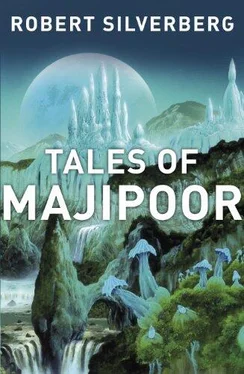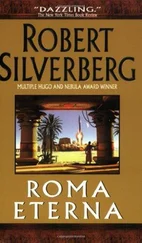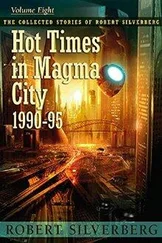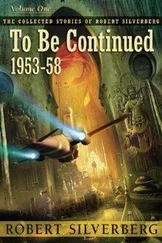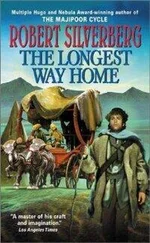Robert Silverberg - The Way They Wove the Spells in Sippulgar
Здесь есть возможность читать онлайн «Robert Silverberg - The Way They Wove the Spells in Sippulgar» весь текст электронной книги совершенно бесплатно (целиком полную версию без сокращений). В некоторых случаях можно слушать аудио, скачать через торрент в формате fb2 и присутствует краткое содержание. Год выпуска: 2013, ISBN: 2013, Издательство: Gollancz, Жанр: Фэнтези, на английском языке. Описание произведения, (предисловие) а так же отзывы посетителей доступны на портале библиотеки ЛибКат.
- Название:The Way They Wove the Spells in Sippulgar
- Автор:
- Издательство:Gollancz
- Жанр:
- Год:2013
- ISBN:978-0-575-13006-7
- Рейтинг книги:5 / 5. Голосов: 1
-
Избранное:Добавить в избранное
- Отзывы:
-
Ваша оценка:
- 100
- 1
- 2
- 3
- 4
- 5
The Way They Wove the Spells in Sippulgar: краткое содержание, описание и аннотация
Предлагаем к чтению аннотацию, описание, краткое содержание или предисловие (зависит от того, что написал сам автор книги «The Way They Wove the Spells in Sippulgar»). Если вы не нашли необходимую информацию о книге — напишите в комментариях, мы постараемся отыскать её.
The Way They Wove the Spells in Sippulgar — читать онлайн бесплатно полную книгу (весь текст) целиком
Ниже представлен текст книги, разбитый по страницам. Система сохранения места последней прочитанной страницы, позволяет с удобством читать онлайн бесплатно книгу «The Way They Wove the Spells in Sippulgar», без необходимости каждый раз заново искать на чём Вы остановились. Поставьте закладку, и сможете в любой момент перейти на страницу, на которой закончили чтение.
Интервал:
Закладка:
I suppose I am more tolerant of alien religions than I am of the home-grown creeds that have sprung up all over Majipoor in the past generation. Aliens are, as hardly needs to be said, alien, and it is quite reasonable to think that the strange workings of their minds have given rise to strange beliefs deeply rooted in their ancient civilizations. But belief in the supernatural is something new to us, and, it seems to me, quite extrinsic to our established nature. We acknowledge the existence of what we call the Divine, yes, but we have never backed that acknowledgment with scriptures or rituals; yet suddenly a new credulity has swept the world, a passionate and almost pathetic willingness to believe in the unbelievable, and I for one, dull prosaic businessman that I am, am not comfortable with it. So I feel disdain and even scorn for the frantic processions of the Beholders and the sea-dragon worshippers and the flagellantes and the blood-drinkers, for the installation in the plazas of our cities of huge idols with ten heads and twenty arms, for the believers in omens and prodigies, demons and goblins, for those who fill their homes with amulets and holy images, and all the rest of it; but, standing in front of this row of alien temples, I experienced only a sort of aesthetic pleasure, what one feels whenever one travels through the world and sees something attractive, something altogether different from what one sees at home.
I fall easily into conversations with strangers; and so it was, as I stood across the street watching strange-looking beings coming and going at the outworlders’ temples, I found myself discussing—warily, at first, then more openly—my attitude toward our current spate of religiosity with a fellow curiosity-seeker, an onlooker who, by the hue of his skin, was probably a native of this region. He was a small, finely built man with brightly gleaming eyes that shined like beacons out of his purple-black face, and he seemed to know which planet each of the different outworld types we were watching had come from. I complimented him on his knowledge, to which he replied, after telling me that his name was Vundafor Thorb and that his home was in the nearby town of Bekadu, that it was his business to know such things: he was an importer whose specialty was supplying these aliens with the foodstuffs and beverages of their native worlds. He said it in a casual way that told me that he actually disliked the presence of all these outworlders in Sippulgar, but that he saw it as a prime business opportunity.
“My late brother-in-law, I think, took the same attitude toward our new religions,” I said. “I have reason to think he saw all this feverish piety as nothing more than a good thing suitable for exploitation.”
“Oh?” And he gave me a sharp look, as though I had offended him by implying that I thought his own attitude revealed a cynical love of profit, which in fact I did. Not that I saw anything wrong with that. But then he smiled and said, “So he went into the religion business, your brother-in-law?”
“Apparently so.” And, bit by bit, I told him what little I could: the nature of Melifont’s character, his repeated failure in a series of grandiose enterprises, and the final letter telling my wife and me that he had embarked on some new project in Sippulgar, followed in time by the official notice of his disappearance. “I’ve been given three boxes full of his effects,” I said. “I found a diary in them that I’ve barely been able to decipher, but which talks about a partner of his named Nikkon Flurivole, and some legal papers indicating that he and this Flurivole were starting a company that was intended to bring ‘spiritual benefits’ to the people of Sippulgar. I translate that as meaning that they were going to trump up some lucrative new religion, don’t you?”
“Surely that must be it,” said my new friend.
“And in another box was a whole sorcerers’ shop full of the claptrap devices that wizards use—crucibles and alembics and ambivials and whatnot. You know what I mean.”
“Melifont Ambithorn was his name, you said?”
“Yes. And his partner was Nikkon Flurivole.”
“Indeed. I knew them, actually. Had some business dealings with them, as a matter of fact. A tall, dramatic-looking man, who walked with a limp? And the other one short, round-faced, sleepy-looking? ”
“I don’t know anything about the other one. But the tall man with a limp—yes, that was Melifont!” I could have wept with delight. If I had been a believer in any of the new gods, I would have given thanks to him. “What can you tell me about them?” I asked eagerly.
Thorb shrugged. “Not very much. I sold them velvet hangings for their chapel, two, two-and-a-half years ago. And some very fine carpets. They spared no expense, you know.”
“That would be like Melifont,” I said. “So they had a chapel. What sort of religion were they running?”
“I don’t know much about it. I even forget the name of their creed. There are so many nowadays, you know. I think it was one of the wonder-working ones: predict the future, cure the ailing, maybe even raise the dead. They had quite a following for a while. It all ended badly for them, of course.”
“Tell me!”
“Well, now, I don’t really know. They both disappeared, is all I can say. Loud noises were heard. Outcries in the night. Some say they were carried off by their own demons, creatures they had summoned themselves.” He grinned, flashing teeth white as ivory. “Not that I give much credence to that, of course. Nor, I suspect, would you. But they vanished. Leaving me, I might add, with unpaid invoices to the amount of close to four hundred royals. I recovered what I could from their cult, but I assure you that I’m still out of pocket to the tune of no small sum.”
“You can have that whole box of wizards’ equipment if you like,” I heard myself saying. My offer, the generosity of which took me by surprise, was an indication of the rush of joy I felt just then at actually having through great good luck come across a clue to this mystery. “Some magus might want to purchase it, and that will help you recover the rest of your loss. Carried off by their own demons, is that the story? Well, hardly likely. Skipping out on their own creditors, I suspect! But at least you’ve provided me with something to start on. I wonder where I could find some members of their cult to talk to.”
“I can’t help you with that,” he said. “But you might try hunting up their high priest. He’s still around, you know. Macola Endrago is the name. He’ll tell you a thing or two!”
Macola Endrago.
I hurried back to my hotel and pounced on Melifont’s journal, which had been becoming gradually less impenetrable to me as I grew more familiar with the idiosyncrasies of his handwriting. Endrago? Endrago? Yes! “M.E. suggests increase in payments.” Could that be anyone else? Their employee, their hired high priest, wanting his salary raised. Then I found the entire name, Endrago, followed by an irritated-looking squiggle. Six pages later, “Macola very difficult today.” My heart was pounding.
Again, again, again: M.E., M.E. “A troublesome man. These damned fanatics!” I think the word was fanatics. Another entry: “He is impossible. I cannot cope with his … ” The last word of the sentence was unreadable. Scarcely anything in the journal that had to do with Endrago was legible, and what there was was maddeningly incomplete—perhaps the journal was mostly in code, or perhaps Melifont was simply one of those untidy men who could not be bothered to write with care. But I knew that my fortuitous encounter with Vundafor Thorb of Bekadu had set me on the right trail. Already I was beginning to form a hypothesis: this Endrago, this priest, obviously had been an annoyingly contentious man, ever hungry for a greater share in the profits from the fraudulent cult that my wife’s brother and his equally shifty friend had put together for the sake of exploiting the naive and easily gulled people of this overly trusting city. Knowing that he was essential to the operation, Endrago must have been forever demanding higher wages for his services, and the two harried partners, perhaps already behind on their bills, had stalled him with one prevarication after another until he had boiled over with rage and murdered them. It would not have seemed implausible, in Sippulgar’s present climate of superstition and gullibility, for the priest to claim that he had seen or heard them being torn to pieces by demons who had carried their bodies off to some other sphere. And now the income from the chapel would be all his to keep.
Читать дальшеИнтервал:
Закладка:
Похожие книги на «The Way They Wove the Spells in Sippulgar»
Представляем Вашему вниманию похожие книги на «The Way They Wove the Spells in Sippulgar» списком для выбора. Мы отобрали схожую по названию и смыслу литературу в надежде предоставить читателям больше вариантов отыскать новые, интересные, ещё непрочитанные произведения.
Обсуждение, отзывы о книге «The Way They Wove the Spells in Sippulgar» и просто собственные мнения читателей. Оставьте ваши комментарии, напишите, что Вы думаете о произведении, его смысле или главных героях. Укажите что конкретно понравилось, а что нет, и почему Вы так считаете.
